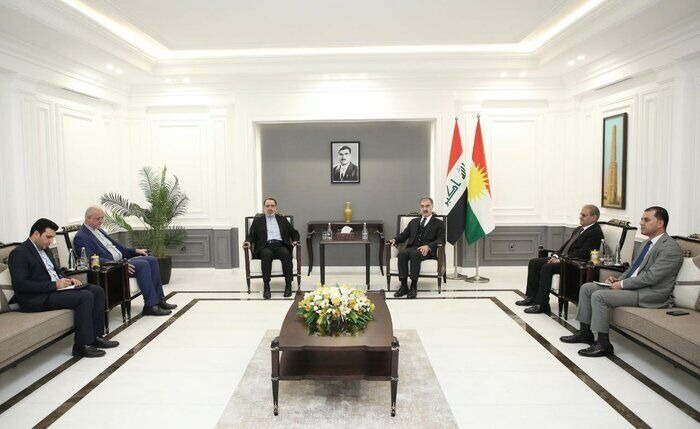KDP leader denies President Barzani's support for controversial Personal Status Law amendments

Shafaq News/ Vian Sabri, head of the Kurdistan Democratic Party (KDP) bloc, denied, on Sunday, that Kurdistan Region President Nechirvan Barzani supports the proposed amendments to Iraq’s Personal Status Law currently under discussion in the Iraqi parliament, affirming that President Barzani is a strong advocate for women's and children's rights.
In a statement to Shafaq News Agency, Sabri said, "We in the Kurdistan Region will always support all the rights and freedoms guaranteed by the constitution and international conventions on this matter. We firmly believe in ensuring the rights of women and children, and in Kurdistan, women and children have been granted extensive rights, comparable to those in advanced countries, particularly in matters such as marriage, divorce, polygamy, inheritance, and child custody."
She further explained, "These rights for women in Kurdistan have been achieved through the continuous support of our leadership for women and their vital role in our society. However, some members of the Iraqi parliament misinterpreted President Nechirvan Barzani’s statements, claiming that he supports the amendments. This is a wrong and incorrect conclusion."
Sabri emphasized, "President Barzani is a pioneer in supporting women's and children's rights. When he spoke on this issue, it was specifically in the context of the rights of minorities and Christians. The meeting in question was about the rights of Christian communities, particularly children whose parents may have changed their religion. He stressed that children should have the right to choose their religion when they reach the age of 18, and that the law should respect Christian beliefs and not impose religious changes by force when a Christian parent changes their faith."
Sabri also criticized the proposed amendments to Iraq’s Personal Status Law No. 188 of 1959, stating, "Instead of enhancing the freedoms and rights guaranteed by the constitution, which reflect the evolution of society and the role of women, the proposed changes represent a significant regression, undermining the rights of women, children, and human rights as a whole."
She concluded by emphasizing that "any amendment to the personal status law must not contradict the provisions of the Iraqi constitution, which guarantees the rights of women, children, and human rights."
It is noteworthy that President Nechirvan Barzani, during a speech at the "Christian Personal Status Law in Iraq" conference held on May 27, 2024, organized by the Catholic University in Erbil, highlighted the lack of a specific law for Christian personal status. He stated that this gap forces Christians to abide by a law that is inconsistent with their religion and beliefs, causing negative consequences for Christian families in Iraq.
He also expressed concern about cases where children and women are forced into complicated legal situations due to issues related to inheritance, divorce, and forced religious conversion when a Christian parent changes their faith.
Barzani emphasized, "In our view, it is unacceptable for a child's religion to be changed before the age of 18 while they are still in an environment where they follow a different faith. We support the idea that when a Christian parent changes their religion, their children should have the right to choose their faith when they reach 18. Additionally, inheritance should be handled in a way that respects Christian beliefs and laws."
The amendment of the Personal Status Law has generated significant controversy among the Iraqi public, leading the Iraqi government to decide to review all comments through the "Higher Council for Women's Affairs."
Opponents of the amendment argue that it permits child marriages, deprives wives of alimony and custody rights, and shifts the basis for legal rulings to religious texts specific to each sect and denomination in Iraq rather than the current secular laws.



